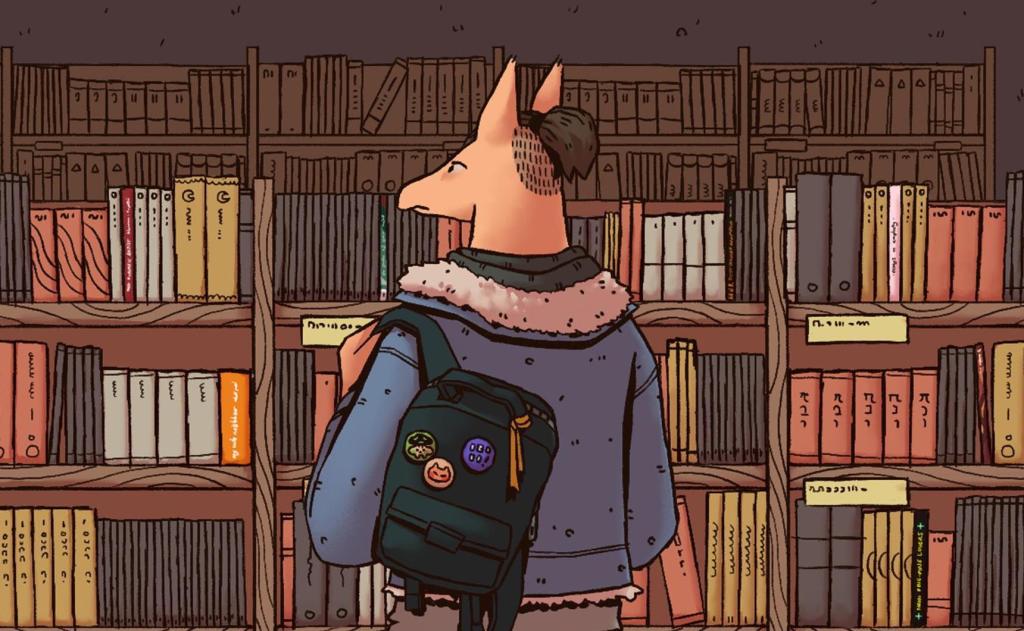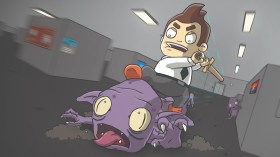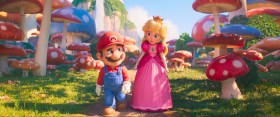Today, I am constructing a bouquet for my ex-lover composed of the last living flowers in the city. The people here are so starved of natural connections that these flowers, once commonplace before industry poisoned the earth, have a preternatural effect on the receiver. In the last few days, I have sent bouquets that ended blood feuds and prompted murder-suicides, and unbeknownst to me, tomorrow my homophobic estranged father will call me from his deathbed, after receiving a potent peace offering, arranged by my hand.
Eternal Home Floristry is one of ten games collected in Deconstructeam’s latest release, Essays on Empathy. It’s a linear magic realist narrative game that takes around 15 minutes to play through, but the creative freedom that its relatively simple flower arranging mechanic allows turns the microgame into a much more expansive experience than the brief playtime would suggest. Each of the games collected here is an innovative, surprising narrative experiment that offers the narrative game genre something new, and the team’s forensic interest in the contours of human relationships is evident.
If I were to read this game in the way I would a literal set of essays, Essays on Empathy is a typical first collection: the games anthologised here represent six years of game development from the three-person studio, rather than being developed specifically for the anthology.
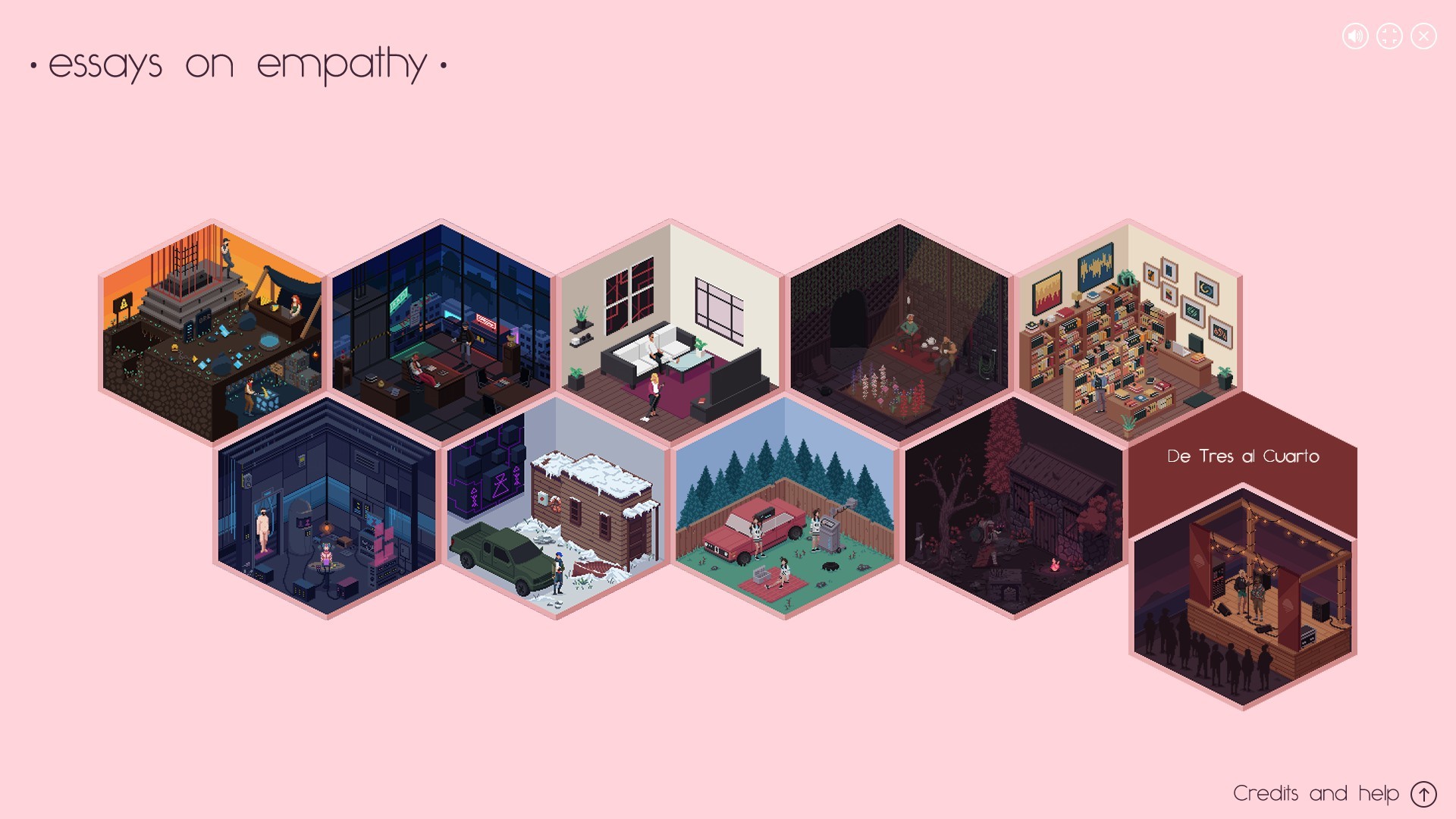
Also like many first collections, Essays on Empathy as a whole has a lot more to say about the creators than its apparent subject. Arranged chronologically, each game takes a fundamentally different approach to narrative expression, covering genres from chaotic metroidvania in their earliest game jam effort, Underground Hangovers, to challenge-free interactive narrative in Eternal Home Floristry, exploring narratives that are sometimes metaphorical or abstract, to achingly personal. Despite the creative breadth that the collection covers, it has a natural continuity; Marina González’ muted, isometric pixel art carries across the entire collection, and transitional screens between the games, interviews and process art are eased by Paula ‘fingerspit’ Ruiz’ gentle, melodic audio design.
These scrappy microgames are given a treatment so rarely offered to game jam games: they are anthologised and analysed here, treated as the historically and creatively significant art objects that they are in the team’s personal and creative history.
Each game is accompanied by a gallery and video interview with the three-person Deconstructeam studio, comprised of artist González, audio expert Ruiz, and writer and designer Jordi De Paco, who freely discuss the emotional and physical labour of creating these games, drawing clear parallels between in-game events, their creative process, and the emotional and personal resonances each had outside of the game world.
The team don’t pull punches, either: in discussing Behind Every Great One, made for Ludum Dare in August 2018, De Paco and González freely admit that the game’s stifling central relationship dynamic was based on a period in their own romantic relationship, before they began mutually dating Ruiz. When González describes it as ‘one of the most painful games to play, and one of the most painful games to make’ the other two creators nod quietly, with this revelation sitting alongside more technically-focussed discussions of prototyping and animation.
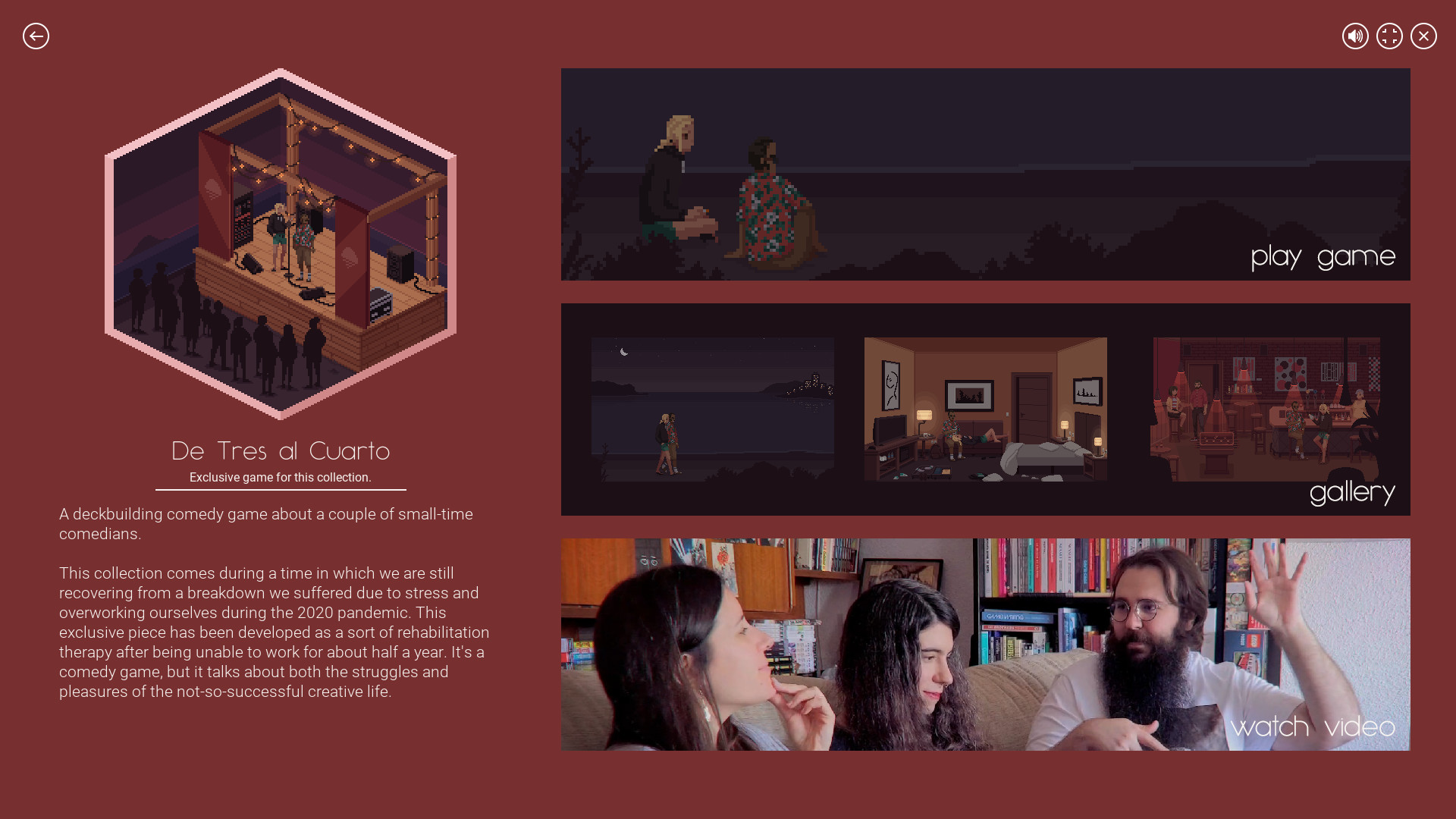
Like most game jam games, many of these games are already available as pay-what-you-want on Deconstructeam’s itch.io, and some of them are also a bit broken; players have reported issues with gamepad inputs, imprecise controls, and my first playthrough of Behind Every Great One was cut short by a bug. To me, however, this is a fundamental and valuable part of the personal, archival experience that Essays on Empathy offers.
These scrappy microgames are given a treatment so rarely offered to game jam games: they are treated as the historically and creatively significant art objects that they are in the team’s personal and creative history.
Essays on Empathy sheds a light on the way our lives shape the work we make, and the way making art shapes us in return. Suddenly, I am remembering that this is what piqued my interest in games in the first place: not the dazzling veneer of a finished product, but the imprints of the people who made it that remain when it ships. The ghost in the machine.
I’m writing this review on a Wednesday night. Today, ten people have tested positive to novel coronavirus in Melbourne, after months of reprieve. Tomorrow morning our acting premier will announce whether further restrictions will be necessary, if the cluster grows. It’s a familiar, lurching feeling that recalls the litany of losses we have all experienced, big and small, over the course of the pandemic: the businesses that closed; graduations that took place over Zoom; the Valentine’s day dinner cancelled; the loved ones we couldn’t say goodbye to.
Playing Essays on Empathy gave me an intimate reminder of the humans who make videogames, and the weird alchemy that takes place between any artist and their tools. Essays on Empathy sheds a light on the way our lives shape the work we make, and the way making art shapes us in return. Suddenly, I am remembering that this is what piqued my interest in games in the first place: not the dazzling veneer of a finished product, but the imprints of the people who made it that remain when it ships. The ghost in the machine.
The world of Essays on Empathy is a world of games that I know: one that is based not on perfection, but mutual expression. After 15 months of pandemic, it’s a creative world that I desperately miss.
The games in this collection feel deeply familiar to me, not because I’ve played them before, but because the act of creating is so apparent in each of them. The more refined titles are brief but urgent probes into human intimacy, and when the games are less polished, their rough edges feel dynamic and alive. I can imagine the engineer on day three of a game jam getting chided for tweaking too rigorously; or the artist settling on a colour palette. The world of Essays on Empathy is a world of games that I know: one that is based not on perfection, but mutual creative expression. After 15 months of pandemic, it’s a creative world that I desperately miss.
I’m so caught up in the prospect of another potential lockdown that, when I step away from this review for a breath of fresh air, I momentarily forget that tonight is a super blood moon – a lunar eclipse when the shadow of the earth passes over the full moon, staining it momentarily red. As a result, I’m taken aback to see that my street, usually quietly suburban, is alive with huddles of people gazing reverently skyward.
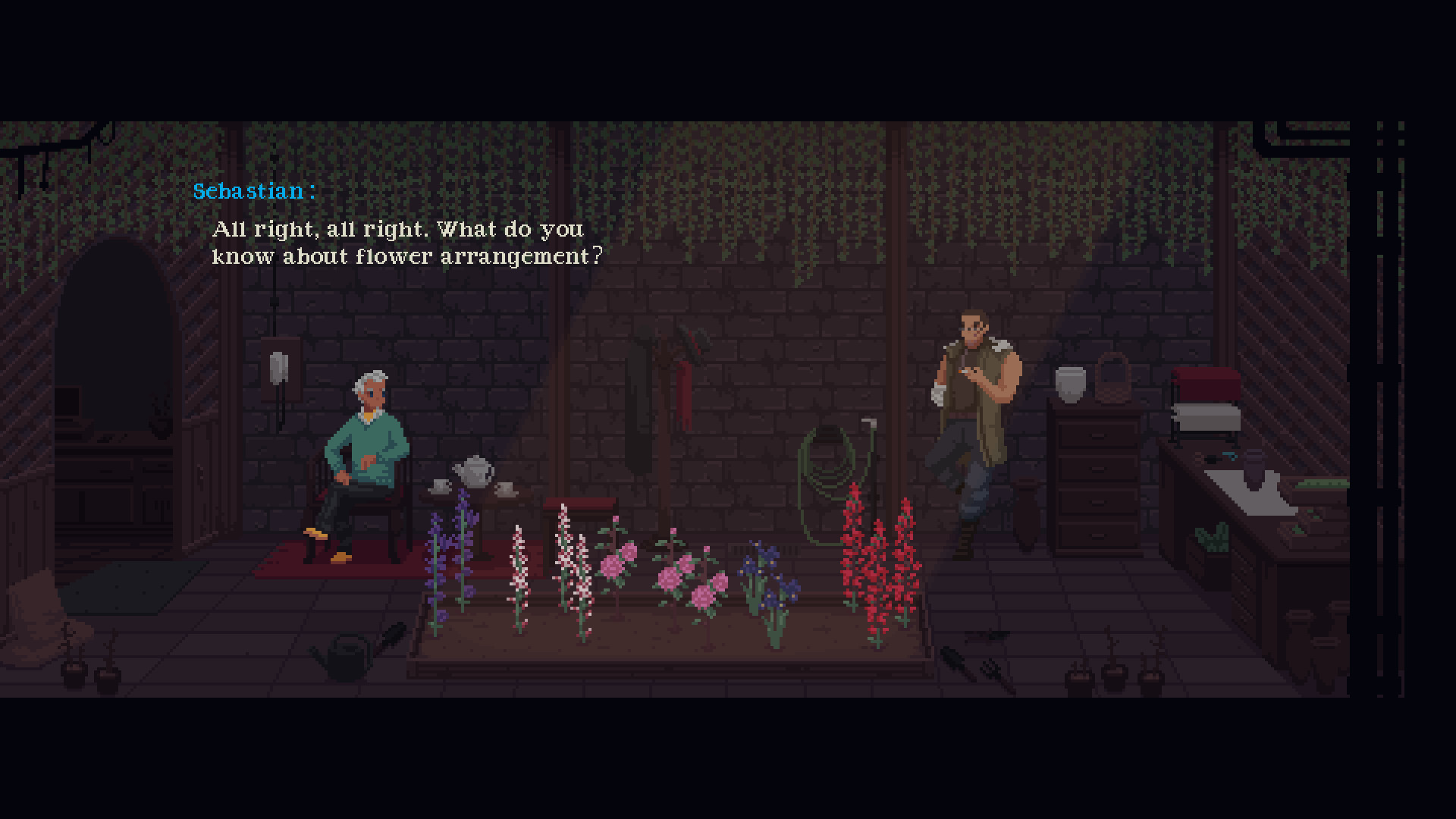
Inevitably, this electric, communal moment will end. When the shadow passes, everyone will start to filter back inside, to get ready for sleep, and then for tomorrow’s workday. Maybe tomorrow we’ll wake up to another lockdown announcement – but I’ll keep in mind how naturally and quickly people seek out these spontaneous kinds of intimacy. For most people, any excuse will do: love, grief, art, play, or a particularly lovely moon.
Essays on Empathy did something better than give me a polished videogame experience. It gave me access to an experience of communal artmaking that I didn’t realise how badly I missed. Seeing this side of games honoured is rare, and for me, it came at a perfect time. Here, games aren’t reducible to perfectly executed pieces of code: they create spaces for creative communion, for players and gamemakers alike.
5 Stars: ★★★★★
Essays on Empathy Platforms: PC Developer: Deconstructeam Publisher: Devolver Digital Release Date: May 20, 2021
Actors:
Director:
Format:
Country:
Release:
